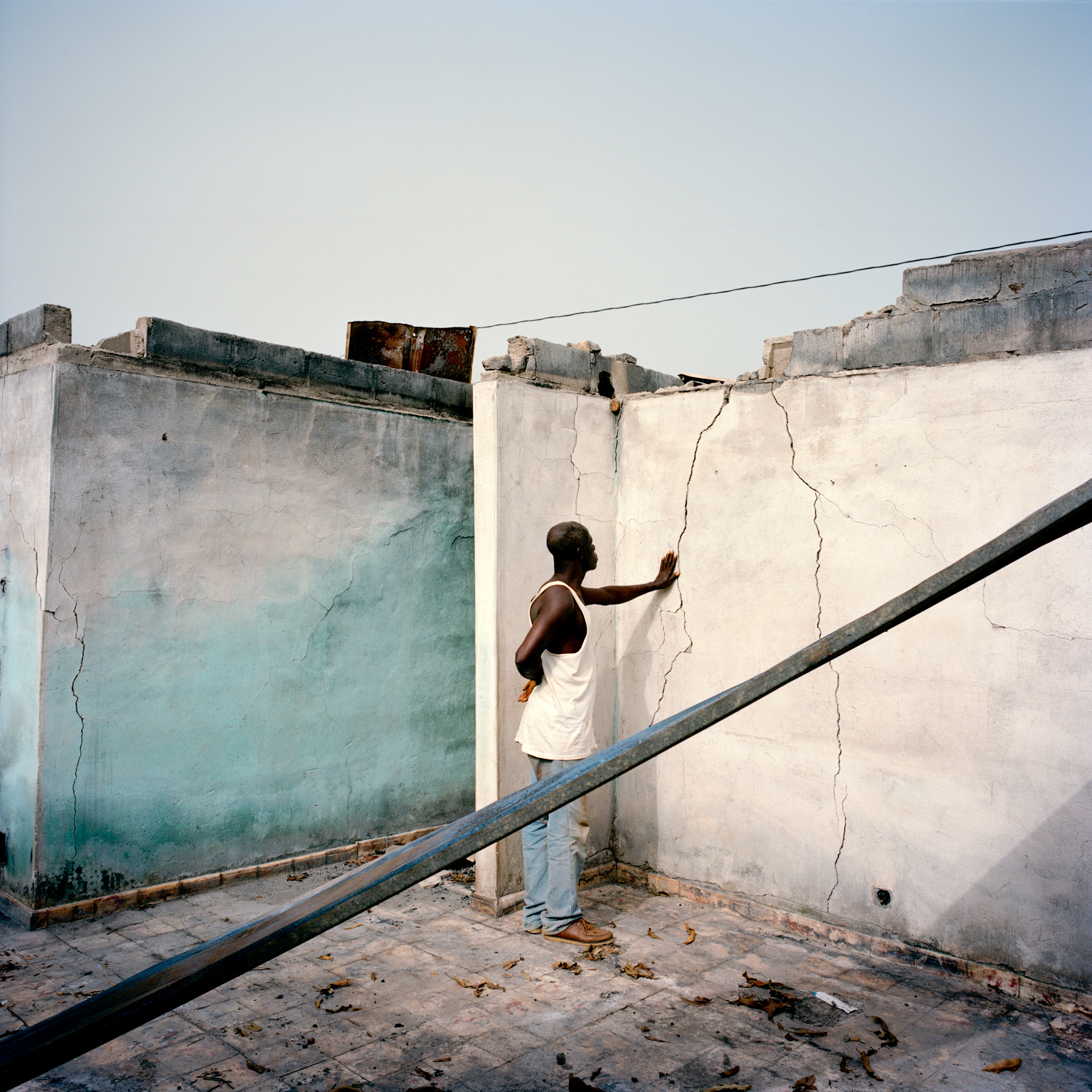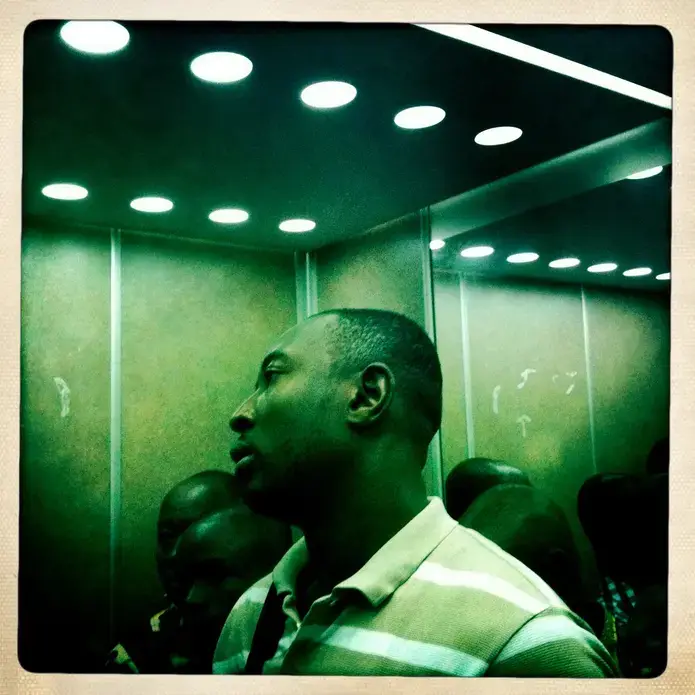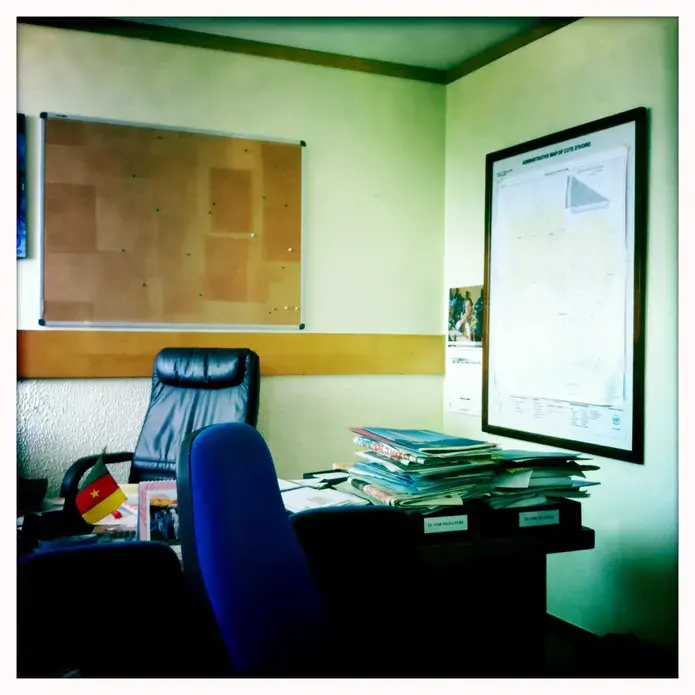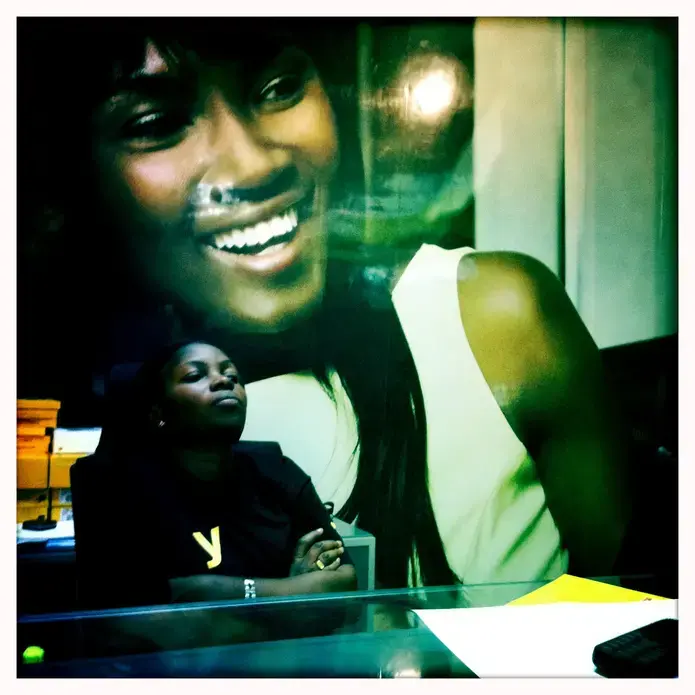Trouble in Ivory Coast's cocoa territory underlies nearly all of the unrest that has plagued the country over the last decade. The people who live in the southwest quadrant of the country, where most of the cocoa is grown, have been engaged in an escalating tug-of-war over land rights for 20 years or more, and the question of who owns the land—and thus who has access to the profits from the cocoa that grows on it—is one that is as complicated as it is inflammatory.
Peter DiCampo and I flew to Ivory Coast to see the cocoa zone with our own eyes, hoping that by speaking with the farmers themselves, we might better understand this conflict that tore apart what was once the "Miracle of Africa." But before we could head out west, we had to find our way through a maze of bureaucracy and corruption in Abidjan—a fact of life in this teeming city that has been exacerbated by years of war.
For starters we exchanged dollars for CFA francs in Treichville, across the Ebrié Lagoon from downtown Abidjan, with a man who was dressed in a long robe and emerged from a warren of low concrete dwellings to duck into our car for a few brief minutes. Then, at the Liberian embassy, an official behind a barred window told us we could get visas "if you do something for me." When we asked what that meant, he said, "We are in Africa! You know what it means!" Later, an appointment with an Ivorian government official took place in a parking lot behind his building and ended with us giving him $60 and a passport—with the promise of a phone call that night to get it back.
"It's a part of the culture," said our driver, an Ivorian in his mid-fifties whose tourism business died with the war. (Now he shuttles journalists and human rights workers around the country.) "It got much worse when Gbagbo was in power. Suddenly no one wanted to work. They just ran rackets and took money for themselves."
While waiting for the call to get back the passport, our driver took us to have dinner at Chez Jacko, an outdoor restaurant in Treichville. Our table was placed on the edge of the street, a few steps from a sewage-clogged drain. We ate a platter of spicy chicken and drank a couple of bottles of local beer, then we hung around a little longer, waiting for the call about the passport. But after a while it was clear there would be no word about it that night. And so we paid the bill and climbed into the car. As we took the bridge back over the lagoon the edge of the port came into view, and suddenly the air was full of the smell of chocolate. A cocoa roasting plant was nearby. But the breeze shifted and the smell was gone by the time we got to the other side, and we drove through the heart of downtown, dark and deserted, back to our hotel.











